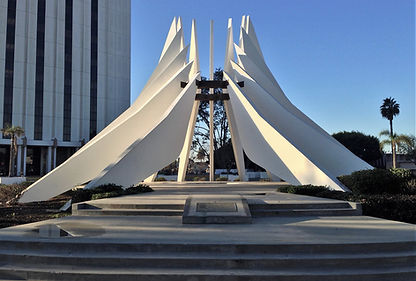When Inclusion Feels Like Exclusion: Rethinking DEI in America
- Citizens Coalition Admin

- Sep 19
- 2 min read
DEI Is Failing the Test of Public Trust

A new AP-NORC poll delivers a sobering verdict: Americans are losing confidence in both the seriousness of racial discrimination and in the ability of diversity, equity, and inclusion (DEI) programs to make a meaningful difference. What was once hailed as a turning point after the summer of 2020 is now viewed with growing skepticism — and in some cases, outright backlash.
The Fading “Racial Reckoning”
In 2021, a majority of Americans believed Black and Asian communities faced high levels of discrimination, fueled by headlines surrounding George Floyd’s killing and the Atlanta spa shootings. Four years later, those numbers have dropped sharply. Beliefs about discrimination against Hispanic and white people, meanwhile, have stayed flat.
The momentum of that so-called “racial reckoning” has clearly dissipated. Whether this reflects progress, fatigue, or disillusionment is up for interpretation — but the shift is undeniable.
When Inclusion Feels Like Exclusion
The most striking part of the poll is that many Black and Hispanic respondents themselves feel DEI initiatives are making things worse, not better.
Instead of removing barriers, DEI often creates doubt about whether someone earned their place or was simply checked off a corporate quota. That’s not empowerment; it’s stigma dressed as progress.
Less than half of Americans believe DEI reduces discrimination. Many see little to no impact, and a significant minority believe it actively increases discrimination. That is a serious credibility problem for a movement built on the promise of fairness.
A Nation Divided on DEI
Partisan divides run deep. White Democrats remain the most supportive of DEI, while Republicans and independents are largely skeptical. Nearly 4 in 10 white adults say DEI increases discrimination against them. Whether one agrees with that perception or not, it is impossible to dismiss it as fringe — it represents a sizable share of the public.
Instead of uniting people, DEI has become another cultural fault line.
Corporate Retreat, Public Fatigue
The corporate world has noticed. Many companies that loudly embraced DEI in 2020 are now scaling back their programs under political pressure, financial scrutiny, or simply because employees and customers aren’t convinced. Performative marketing campaigns and shallow representation efforts have worn thin.
When even minority employees feel tokenized, it’s clear the execution has gone wrong.
Rethinking the Path Forward
DEI was meant to create opportunity and foster fairness. But good intentions are not enough. If programs reinforce suspicion, if they undermine merit, if they leave people questioning legitimacy rather than celebrating diversity, then they are not serving their purpose.
The Associated Press poll doesn’t just capture shifting opinions — it reflects a deeper loss of trust. If DEI is to survive, it cannot remain a buzzword or a checkbox. It needs a fundamental rethink, grounded not in appearances but in genuine opportunity, transparency, and merit.
The American public has delivered its verdict: the current model isn’t working. The real question is whether leaders will listen.
Read more on this Associated Press poll here:







Comments